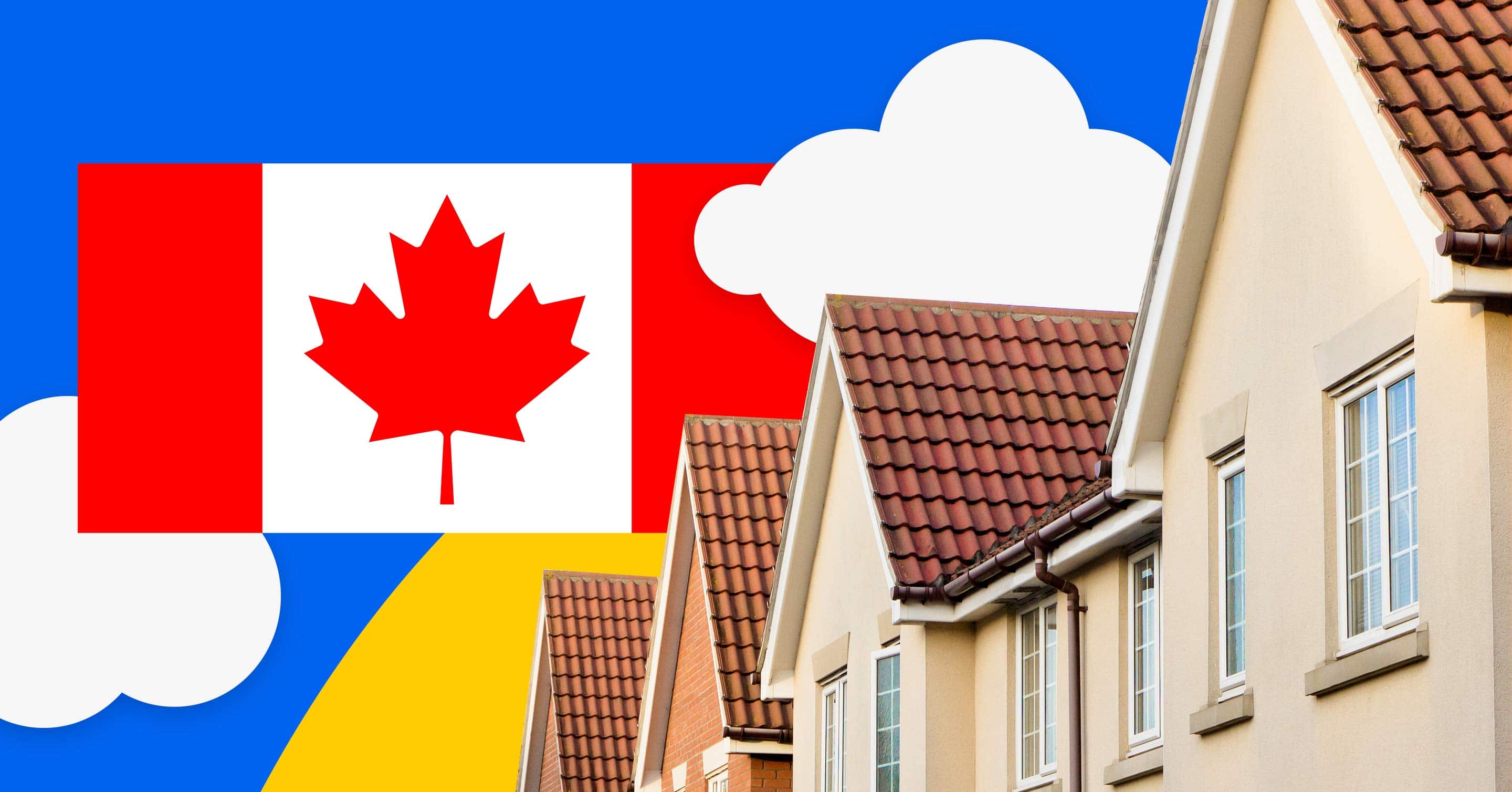Mortgage Basics #Featured articles
Mortgage Basics #Featured articles
How does my credit score impact my mortgage rate?

Table of contents
Co-written with KOHO
Picture this: you’ve found the perfect home for you. But when you go to your mortgage lender to start the mortgage application process, there’s a problem. Your credit score isn’t quite where it needs to be in order for you to get a great mortgage rate. So, what do you do?
Many Canadians don’t know their credit score is an essential part of the mortgage approval process. And they can be in for an unfortunate surprise when their application is denied or approved at a higher-than-anticipated interest rate. Let’s take a look at how credit scores impact your mortgage rate, what credit score lenders are looking for, and what you can do to improve yours.
Key Highlights
- Your credit score affects your mortgage interest rate, with higher credit scores translating to lower interest rates.
- A good credit score in Canada is between 660-900, while a score below 660 is considered poor to fair.
- Factors affecting credit score include payment history, credit utilization, debt, and bankruptcy history.
What’s a good credit score in Canada?
Your credit score is a number between 300-900 that’s calculated by the credit bureaus. It indicates how responsible you are with credit and the likelihood that you’ll pay it back. In Canada, a credit score between 760-900 is considered excellent, and anything between 660-760 is good to very good. Scores above 660 show you can manage credit well and a lender should feel comfortable letting you borrow money at a competitive rate.
If your credit score is in the 300-659 range, it’s considered poor to fair and shows the lender that you’ve mismanaged your credit. The lender will consider you as a risk, meaning you’ll be required to pay a higher mortgage rate. In Canada, the average credit score hovers around 650, depending on the province you live in.
What credit score do I need to get a mortgage?
The better your credit score, the better your borrowing power. Here’s what kind of mortgage different credit score ranges might get you.
Credit scores of 760+
A credit score of 720+ is a fantastic credit score and will go a long way when it comes time to apply for a mortgage. If everything else in your application is solid, this credit score will land you on the higher end of the mortgage amounts available to you.
Credit scores of 660-760
A credit score between 660 and 760 can range from good to very good. While not the best, these scores are still above average and will get you some of the better mortgage rates available.
Credit scores of 600-659
This range is where the average credit score of Canadians usually hovers around and it is referred to as “fair credit.” Just like the designation might already suggest, you can definitely qualify for a mortgage with a fair credit score, but you won’t be able to access the best mortgage rates available.
Credit scores below 600
This range is what is usually considered as “bad credit.” In this case, it is unlikely that you will qualify for a mortgage with most lenders. If you have bad credit, it might be better for you to work on bettering your credit before trying to get a mortgage. Bouncing back from bad credit can be a difficult undertaking, so be sure to speak to an expert and use all the tools available to you.
What are the cost savings of having a good credit score?
The cost savings of having a good credit score can be significant. A good credit score will qualify you for a better mortgage rate, which will save you thousands on interest payments over the duration of your mortgage. Small differences between rates may seem insignificant, but it builds up over time. For example, here is the same $500,000 home with two different 5-year fixed rates, a 5% down payment and 25-year amortization.
| Home Price | Mortgage Rate | First Year Interest Paid |
|---|---|---|
| $500,000 | 5.50% | $26,628 |
| $500,000 | 5.75% | $27,833 |
What are the factors that affect my credit score?
The two credit bureaus in Canada – Equifax and TransUnion – calculate your credit score based on complex equations. Here are the key factors that affect your credit score:
- The length of time you’ve had credit
- If you carry a balance on your credit cards
- If you frequently miss payments
- How much debt you currently have
- How much credit you use out of the total amount available to you (i.e. your credit utilization ratio)
- If you’ve ever filed for bankruptcy
- If any of your debts have ever been sent to collections.
How does my credit score affect my mortgage rate?
Your credit score is an indicator of your overall financial health, so it makes sense that your credit score affects your mortgage interest rate. It’s a pretty simple rule to follow – the higher your credit score, the lower your interest rate should be. Even just a few decimal points could translate into dramatic savings on interest over the course of your mortgage term.
To get the best mortgage rates, you’ll need a credit score of 760 or higher, coupled with consistent income. You’ll also need to meet the lending criteria (which vary from lender to lender) and pass the mortgage stress test. If you have a good credit score of 660 to 760, you should still be able to access various mortgage rates, but you may notice a slight increase in your interest rate. Also, keep in mind that a significant down payment may be able to help mitigate this.
If your credit score is below 680, your access to lower interest rates may be limited, as rates do increase as your credit score declines. Recently, the Canada Mortgage and Housing Corporation (CMHC) lowered the minimum credit score requirement for a mortgage from 680 to 600 to benefit folks building their credit. However, this change does not guarantee the best mortgage rates, as prime mortgage lenders still may not consider you.
A score below 600 makes it challenging to qualify for a mortgage from a bank in Canada, but you can look at alternative mortgage options, like private mortgage lenders. While these lenders may not require a minimum credit score, their interest rates and fees are often higher than those offered by prime lenders. If you’d like to avoid paying more than you have to, you can work to improve your credit score before applying for a mortgage.
Find a better rate, and we’ll match it, beat it, or give you $500*.
*Conditions Apply
With nesto, it’s stress-free
How do I build my credit score?
A good credit score in Canada can make life easier – especially when you’re looking to purchase a home. To help make sure you get a great mortgage rate, here are the top three tips to help improve your credit score quickly.
Tip #1: Pay your bills on time every time
This one’s easy. Paying your bills one time is the most straightforward way to build your credit score, but it is also the most impactful. Your payment history makes up 35% of your credit score, which is the largest of all the factors.
Late payments lower your credit score and can result in penalties, higher interest rates, lower credit limits on financial products, and even court judgements, which will appear on your credit report. If you’re able to, try to pay your bills on time, every time, or make the minimum credit card payment.
Tip #2: Watch and understand your credit utilization ratio
Your credit utilization, or how much credit you’re using out of your available limit, is a significant factor that impacts your credit score. Your credit utilization accounts for roughly 30% of your credit score, and the credit bureaus recommend keeping your credit utilization below 30%. Also keep in mind that all your credit cards and lines of credit are included in this calculation. You can calculate your ratio by:
- Adding up all your balances on your credit cards and lines of credit
- Adding up the limits you have on all of your credit cards
- Dividing the total balances you have by the total credit limit
- Multiplying by 100, and you’ll get your ratio as a percentage.
This means that if you have a total available credit of $20,000 across all your credit cards, you should only be utilizing up to $6,000 total of that credit every month.
Tip #3: Use KOHO’s Credit Building tool to build your credit
KOHO’s Credit Building tool is an easy-to-use and secure way to build your credit history. After you provide some information, we’ll conduct a soft check on your credit and issues a balance accordingly. KOHO will then report a small amount of money each month to the credit bureaus as your repayment history, which builds your credit history. Plus, you can track changes to your credit history on KOHO’s app, making it easier than ever to improve your credit score.
We get it – having less-than-perfect credit is stressful enough on a good day; it’s not something you’d like to worry about in addition to saving up for a place of your own to call home. With KOHO’s Credit Building tool, you can alleviate some of that strain by rebuilding your credit history safely and securely.
The bottom line
If you’re already on the house hunt, do your best to make on-time payments, and don’t make any large purchases to keep your credit score in tip-top shape. If time is on your side, don’t be afraid to build your credit score first before applying for a mortgage.
By understanding the relationship between your credit scores and mortgage rates, you can achieve your goal of homeownership faster and with fewer surprises along the way.
Ready to get started?
In just a few clicks, you can see our current rates. Then apply for your mortgage online in minutes!















